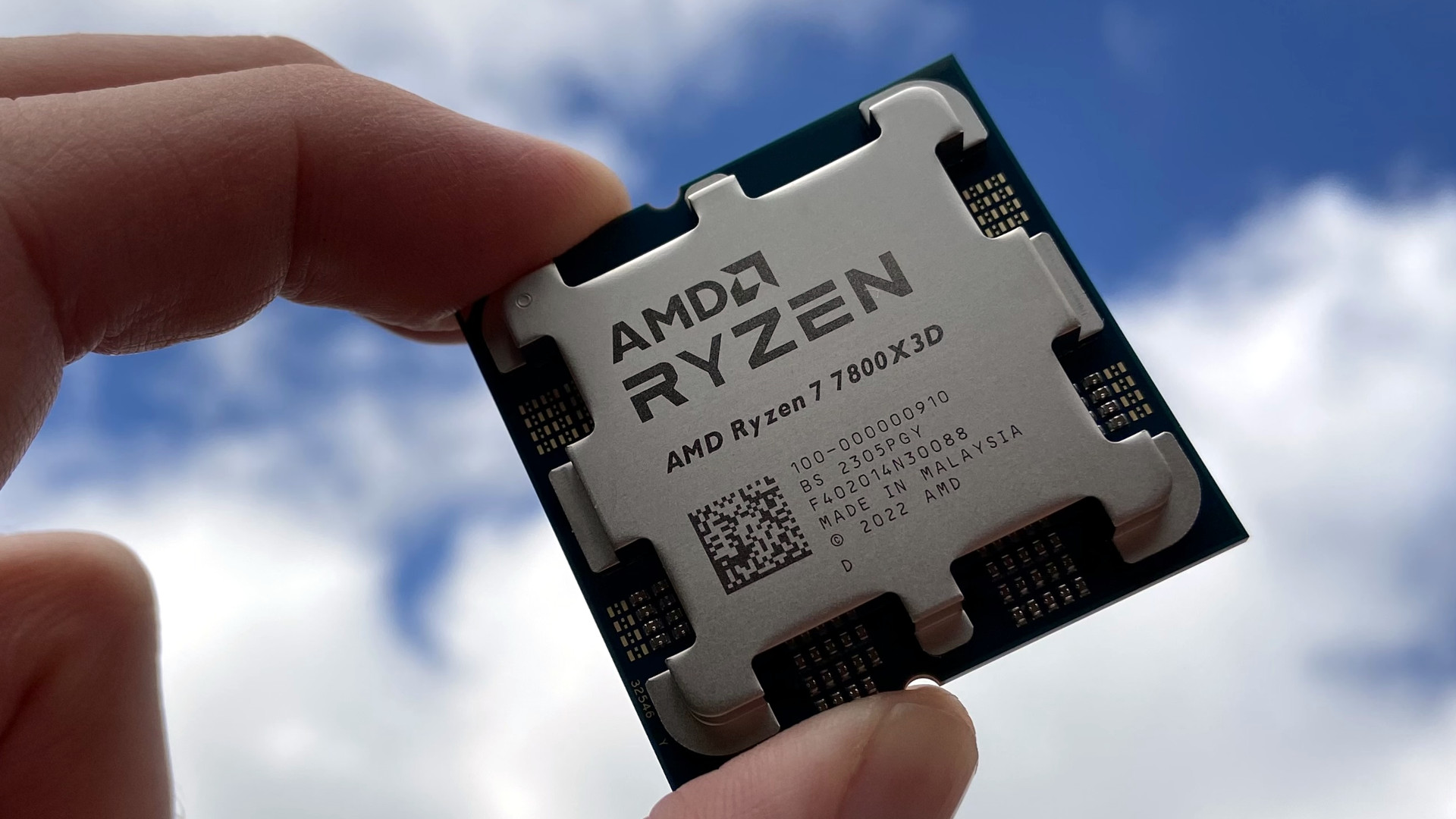
AMD promises the perfect gaming processor with the new Ryzen 7 7800X3D, one of three in its range that claims to perform as well as its high-end sibling, the 7950X3D. This 8-core, 16-thread CPU pulling a 120W base TDP also goes head-to-head with the Intel 13th Gen Core i9-13900K, focusing on gaming performance for the fight.
A chip design loaded with extra L3 cache should speak for itself in games, but can it provide enough raw horsepower for such a low price point versus the competition? I paired it with suitably beefy components for some early benchmark impressions leading up to this Ryzen 7 7800X3D review in progress, and the early verdict is pretty spectacular for gamers.
Ryzen 7 7800X3D: Price and availability
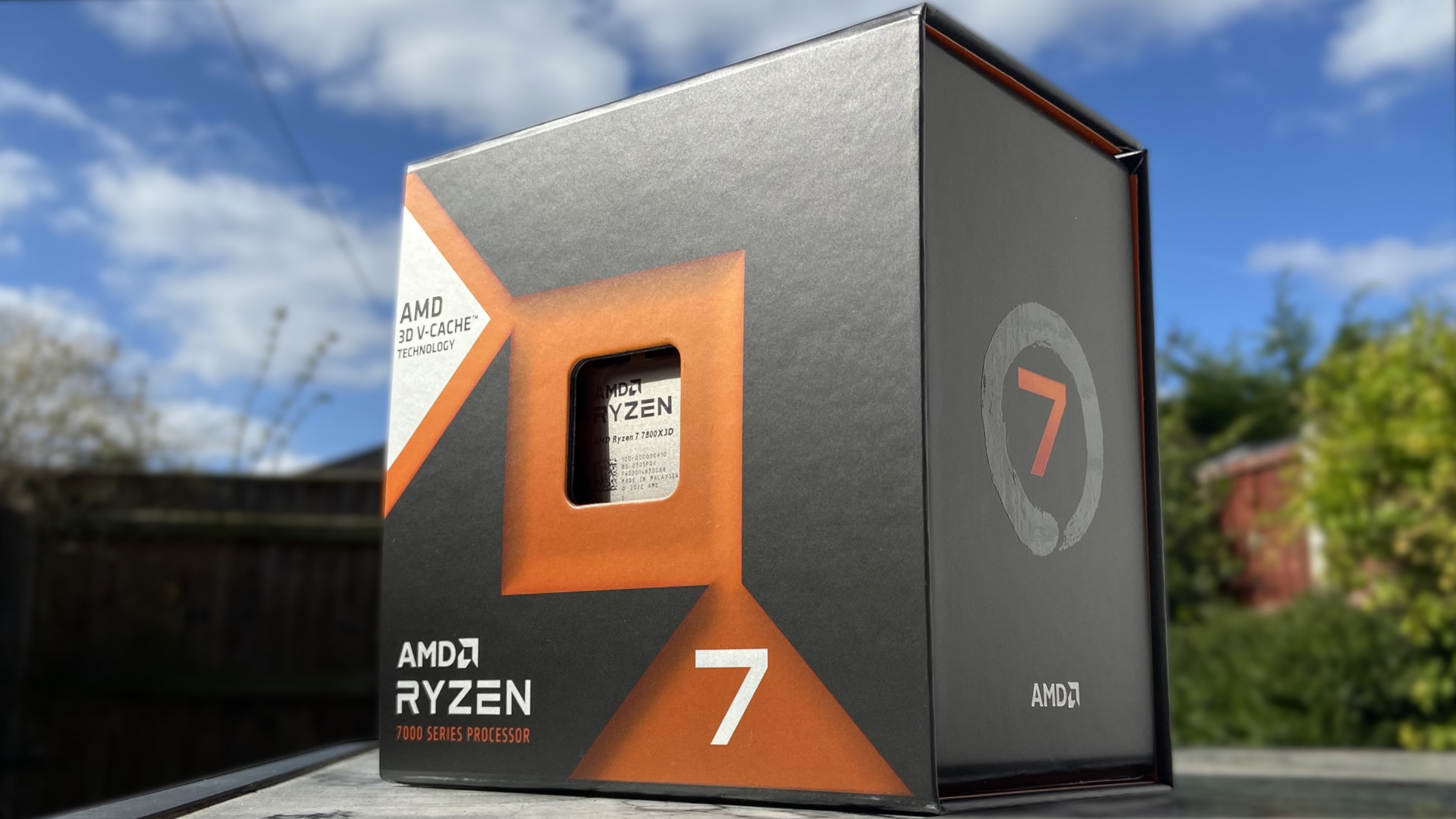
AMD sells the Ryzen 7 7800X3D processor for $449 MSRP through third-party retailers, releasing on April 6, 2023. The most affordable of three CPUs in the -X3D range, it's available alongside the Ryzen 9 7900X3D and Ryzen 9 7950X3D for $599 and $699 MSRP, respectively. All three are designed for AM5 socket motherboards, generally cross-compatible with AM4 CPU cooler brackets, but you should check your components for compatibility before purchasing.
AMD provided a sample for this review but did not see the article's contents before publishing. See the full specs breakdown below for the exact hardware included in my benchmarking PC.
Ryzen 7 7800X3D: Specs and testing parts
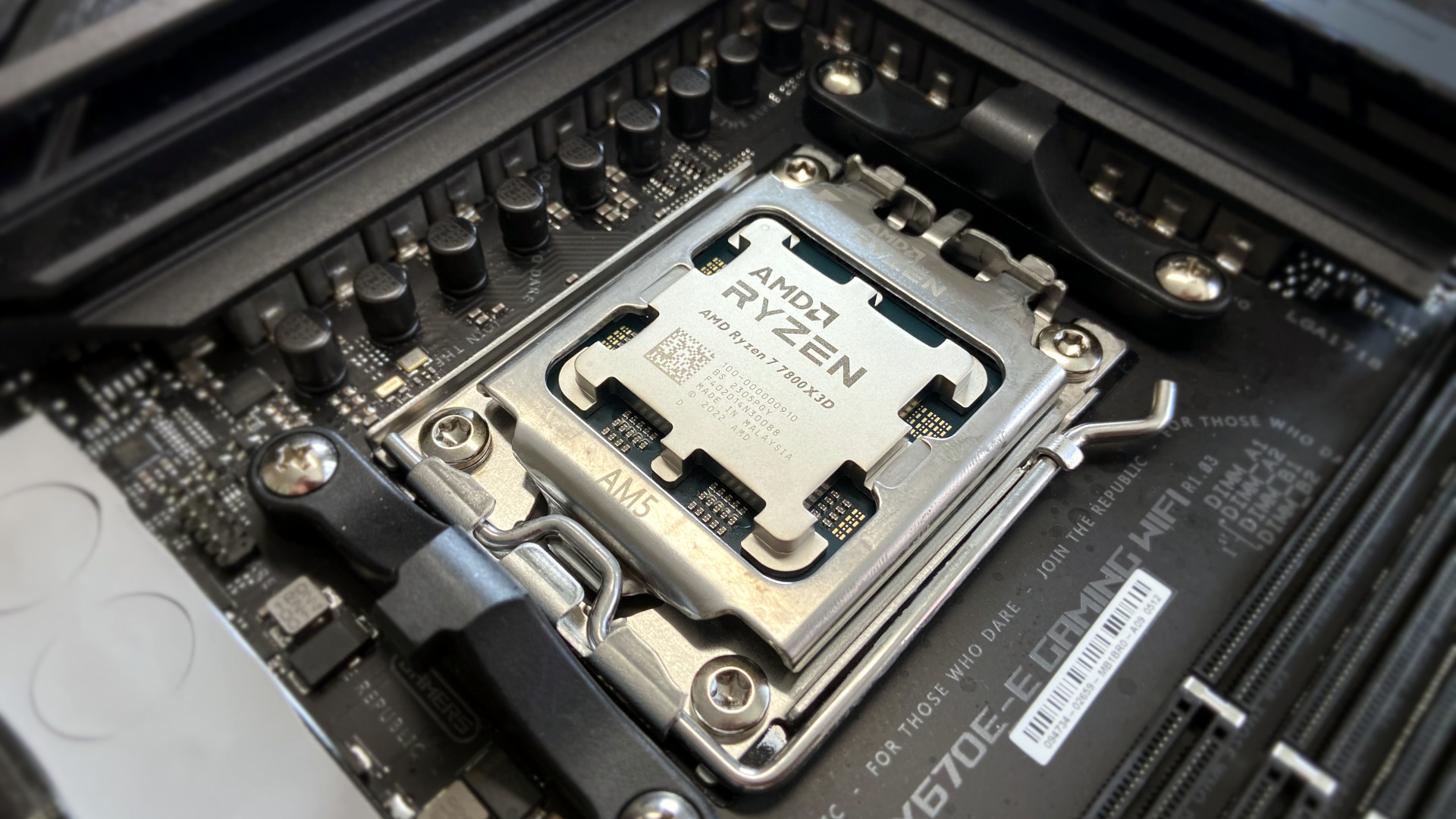
Considering the Ryzen 7 7800X3D is technically the low-end of the -X3D family, the reference benchmarking results provided by AMD show it performing only slightly behind the high-end Ryzen 9 7950X in gaming tests. Touted as the perfect gaming processor, indicating such a slight separation between the entry-level and flagship variants is an exciting prospect, leaving the more expensive chips to dedicated content creators.
Breaking the specifications down shows all three Ryzen -X3D CPUs pulling a 120W base TDP, 5W lower than even the Intel Core i9-13900K, advertised as the main competitor to today's review model. Our Ryzen 7 7800X3D sports an 8-core, 12-thread setup, which jumps to 12 cores and 24 threads for the mid-step Ryzen 9 7900X3D and 16 cores and 32 threads for the Ryzen 9 7950X3D, with at least a $100 MSRP increase each time.
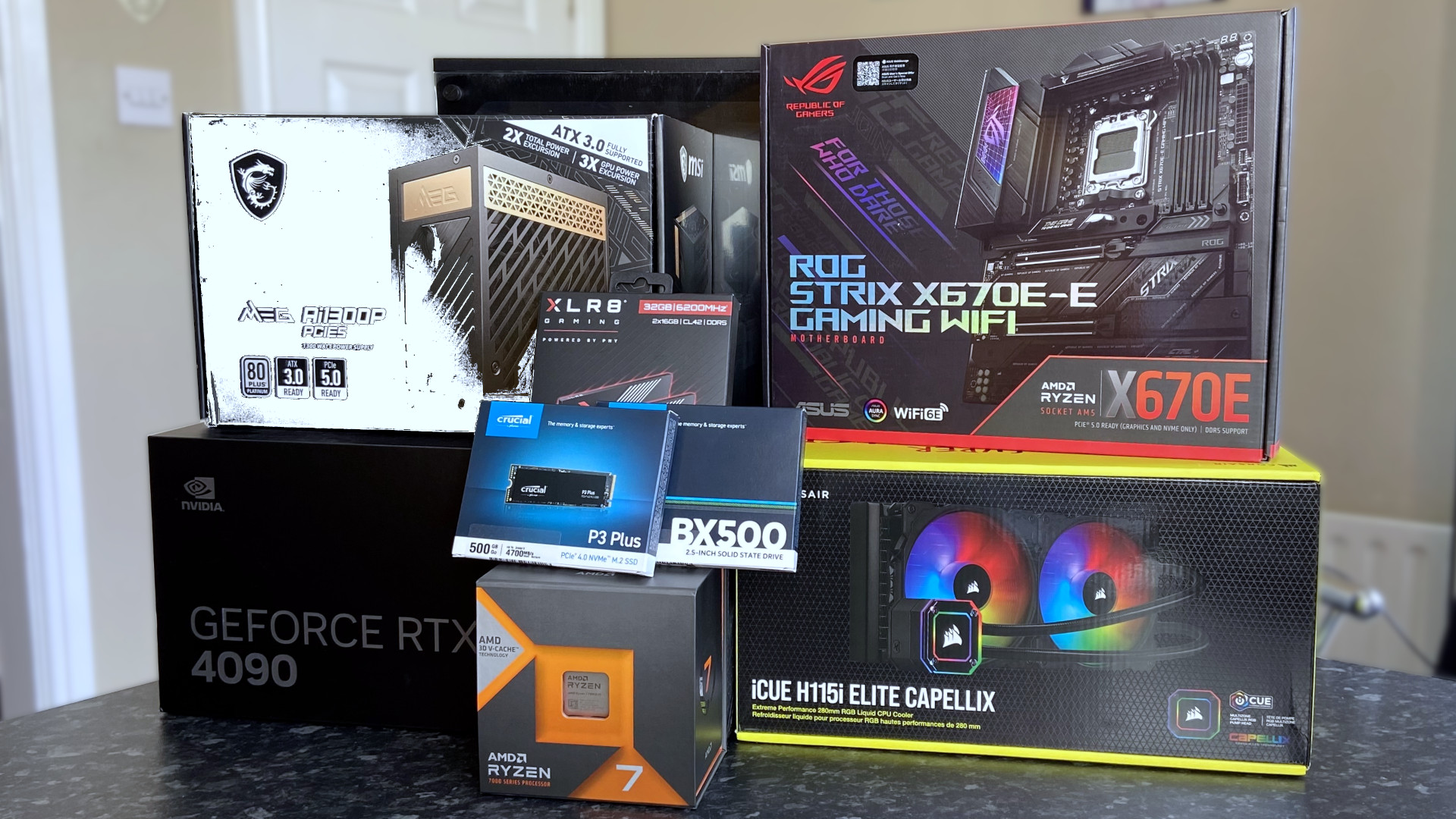
Overclocking is undoubtedly on the cards for my testing, although standard benchmarks at default settings will come first. Still, it's worth building a capable desktop around this beefy CPU to keep it cool and provide all the power it could ever need. My rig is a reasonably close match to the official test system AMD uses, right down to the RTX 4090 GPU and 32GB of high-speed DDR5 memory.
AMD's testing was done on an "AM5 reference" motherboard, whatever that is, but it won't be a million miles away from the X670-E board I have. Pre-release BIOS updates and a slew of drivers were all provided, and I used a clean install of Windows 11, applying everything currently available from Windows Update. Rather than AMD's choice of an NZXT Kraken X63, I picked a Corsair H115i Elite Capellix, but both feature 280mm radiators.
The Ryzen 7 7800X3D might have a suspiciously low TjMax temperature of 89°C, but AMD assures me the CPU is designed to run constantly at this temperature without any risk of damage. It's not an absolute max but more of a performance target, and it will throttle itself if needed. Extreme gaming performance is the aim here, so it'll push for the TjMax and hold steady whenever possible.
Part of the 6nm I/O die feature set is sophisticated power management carried over from AMD Ryzen 6000-series mobile processors. While I'm providing an outrageous potential 1300W to the entire system, it seems unlikely the Ryzen 7 7800X3D will ever reach its max PPT of 162W.
Rest assured; I'll push this chip as close as possible to provide a stable overclock in extended testing via Precision Boost in the Ryzen Master app. However, the promises of reliable performance alongside enhancements from 3D V-Cache should be appealing to gamers interested in custom builds with or without overclocking.
Ryzen 7 7800X3D: Benchmark results
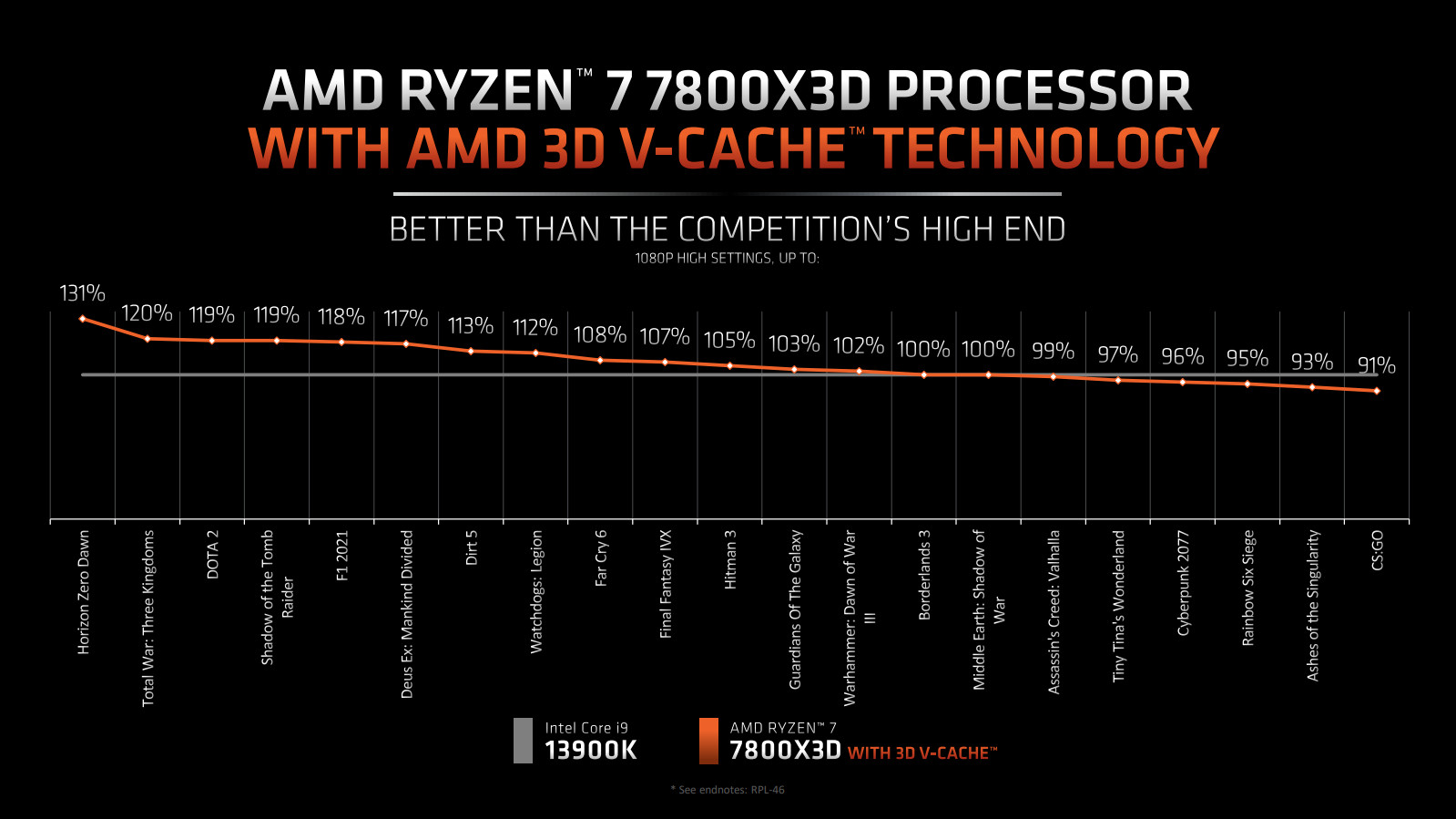
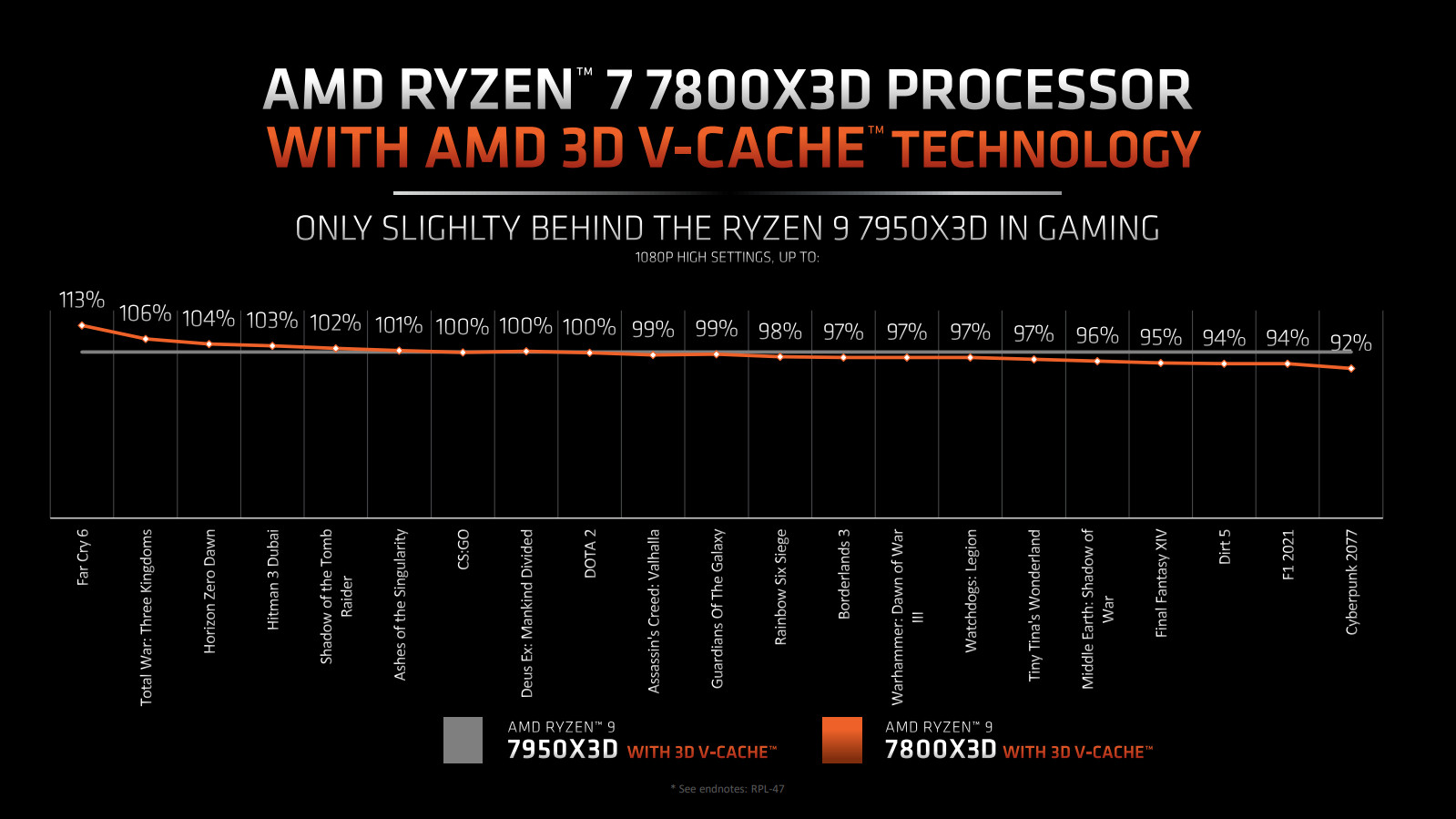
AMD provided a set of in-house benchmark testing results along with the CPU sample, and you'll notice it's all about the games. They know precisely what they've made and aren't hiding that the 7800X3D shines best for gaming rather than productivity. You should take manufacturer-provided benchmarks with a grain of salt since they're usually surrounded with phrases like 'up to X%' improvement with nothing to back them up, but this time it seems legit.
Knowing this processor wasn't designed for high scores in our usual benchmarking tests, it felt almost too harsh to compare the 7800X3D to its closest scoring relatives on our charts, but covering all the bases is important. Covering a broader score range, PCMark 10 shows the 7800X3D fly to almost the top spot ahead of the Ryzen 9 7950X, but the trend of dominating our pink productivity graphs ends there.
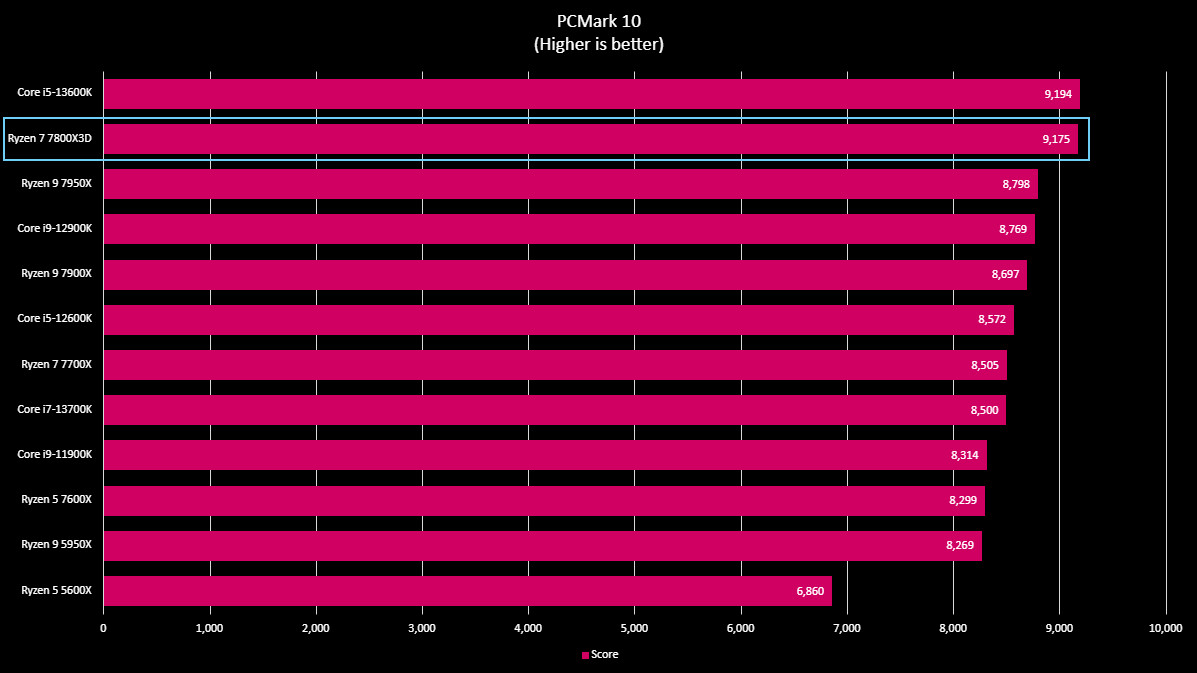
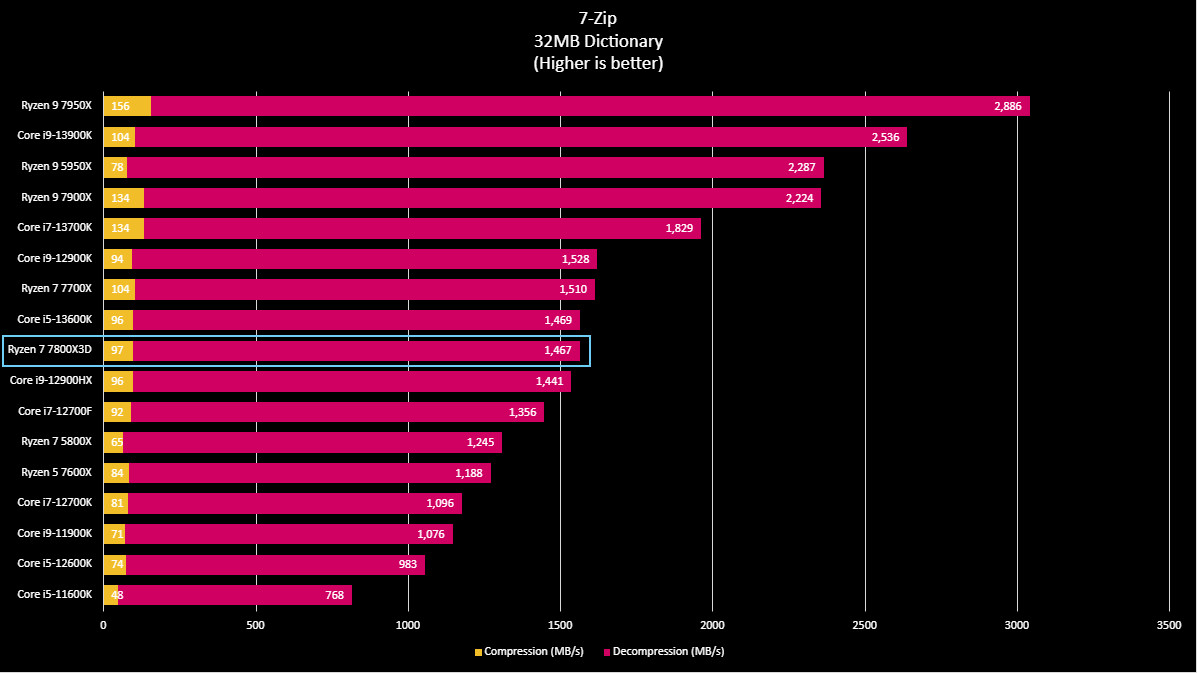
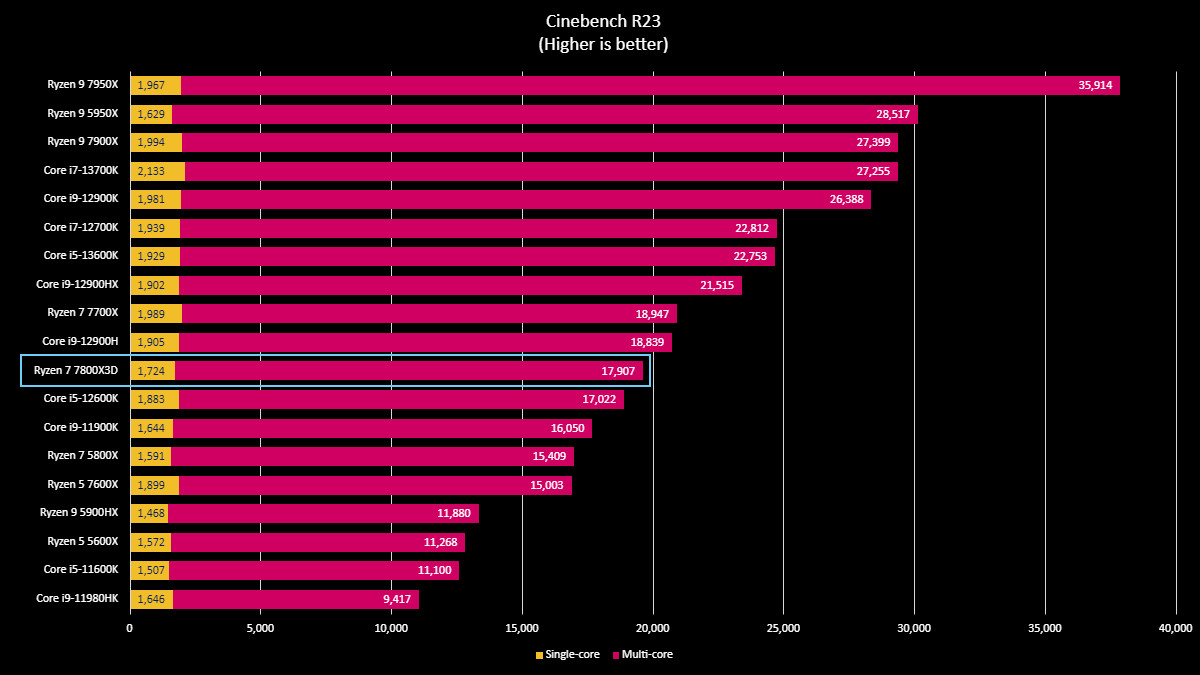
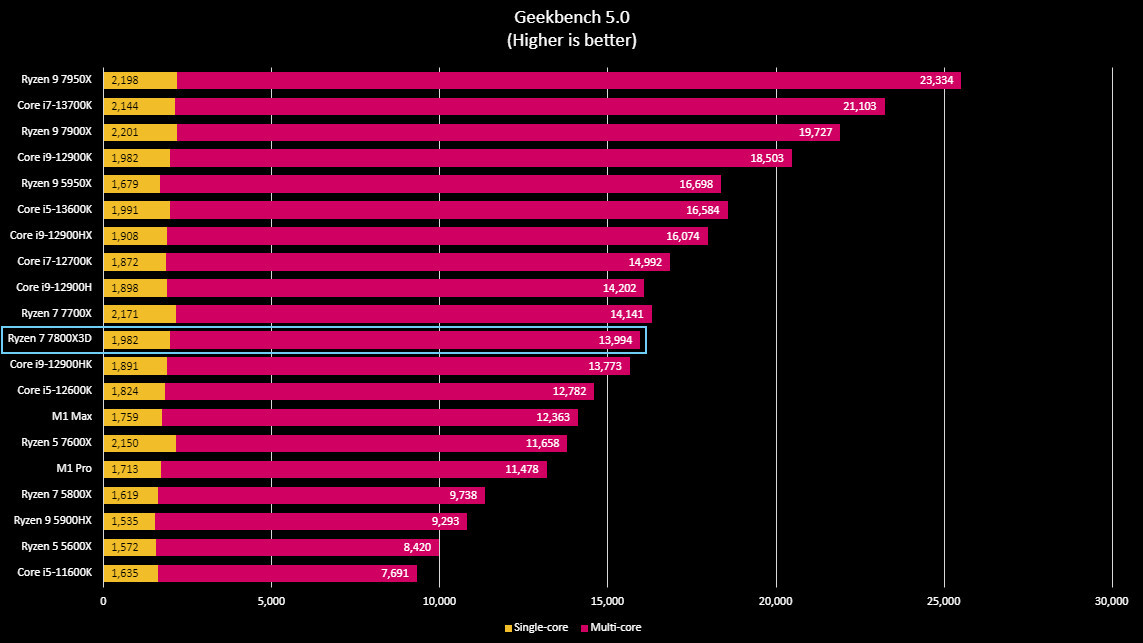
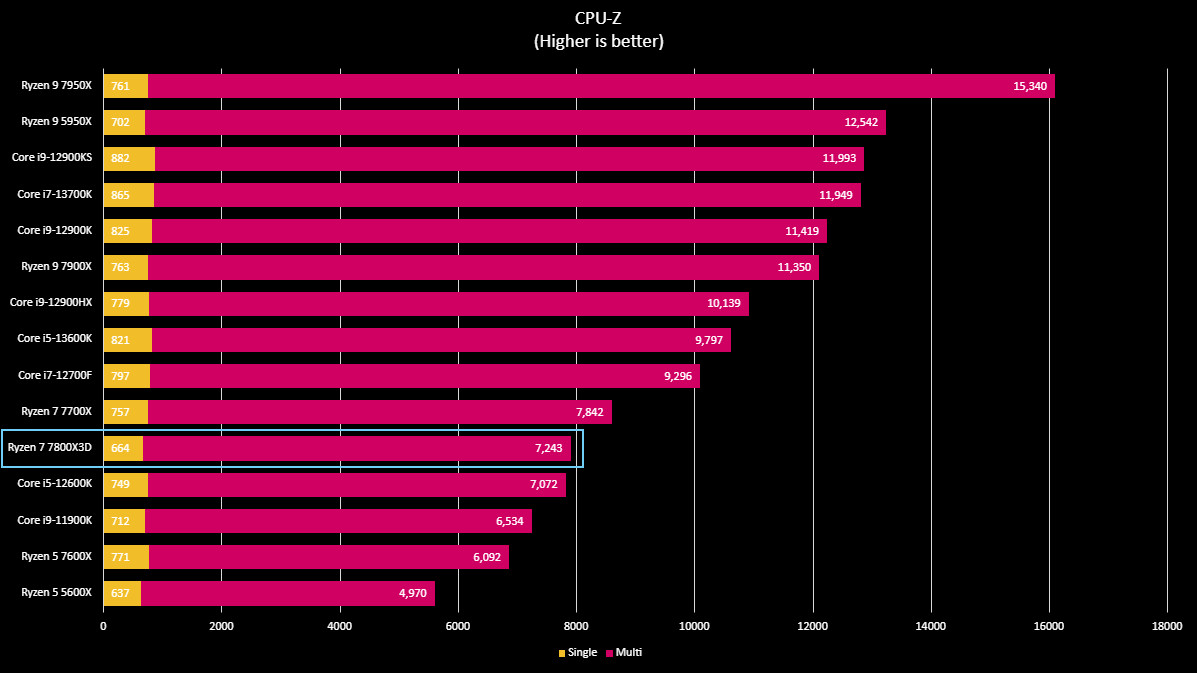
Placing close to the $400 Ryzen 7 7700X more than once in various benchmarks, the 7800X3D hovers around the middle of our batch of previously-tested processors. Geekbench 5 sees the Ryzen 9 7950X miles ahead, and a Geekbench 6 test saw a single-core score of 2,612 and a multi-core score of 14,865. It's still early days for the latest version of Geekbench, so it doesn't get a chart of its own, but it's similarly unexciting.
Intel's unwavering dominance over the 7800X3D in practically every category for productivity is more crushingly evident than anything else. Again, AMD isn't trying to paint this CPU as an all-rounder, firmly advertising its strengths in gaming, but this will narrow its appeal somewhat. We need to see the numbers in the interest of fairness, but if you're here because you're looking for your next gaming-focused processor, you'll be thrilled with my early reports.
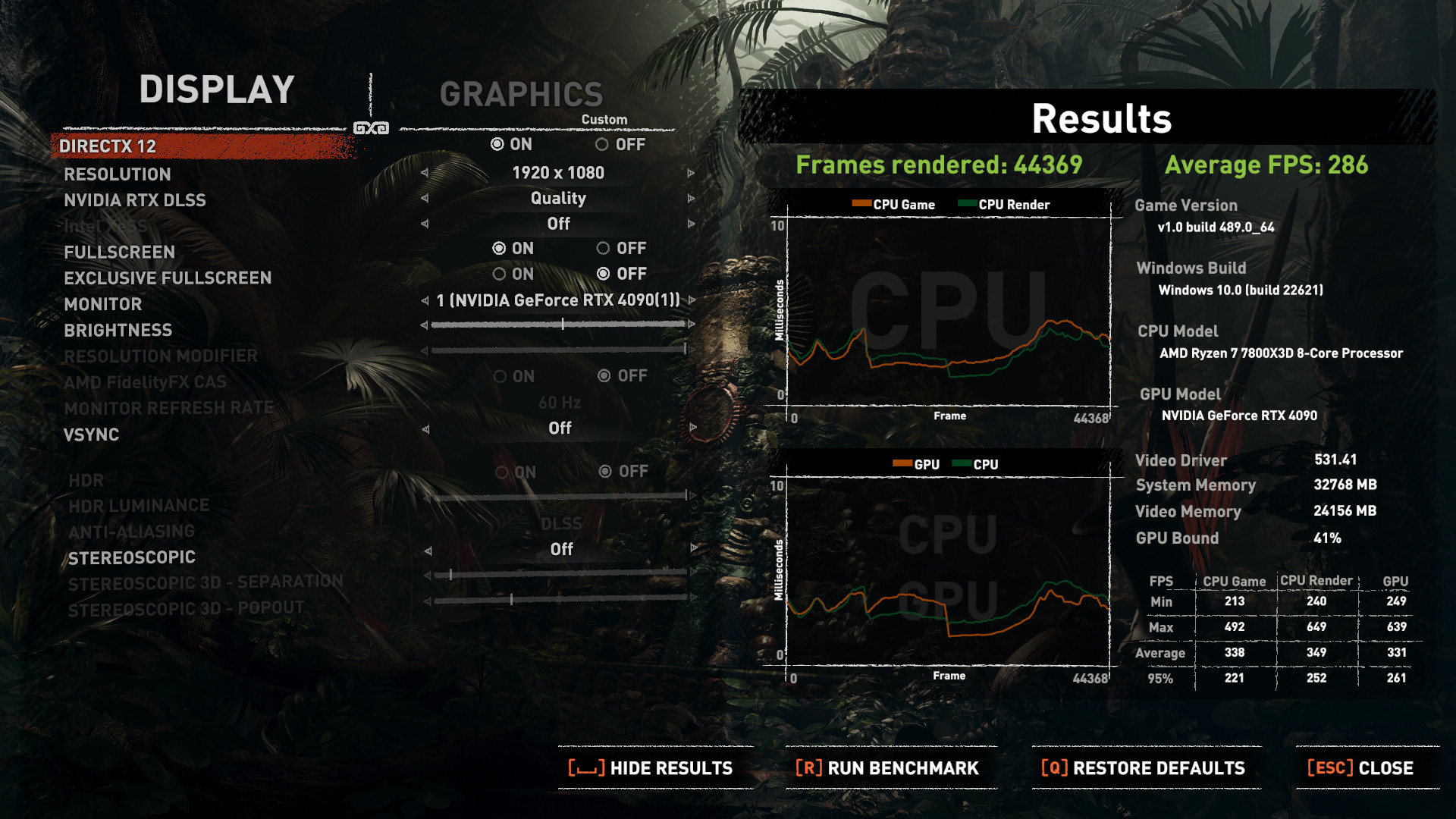

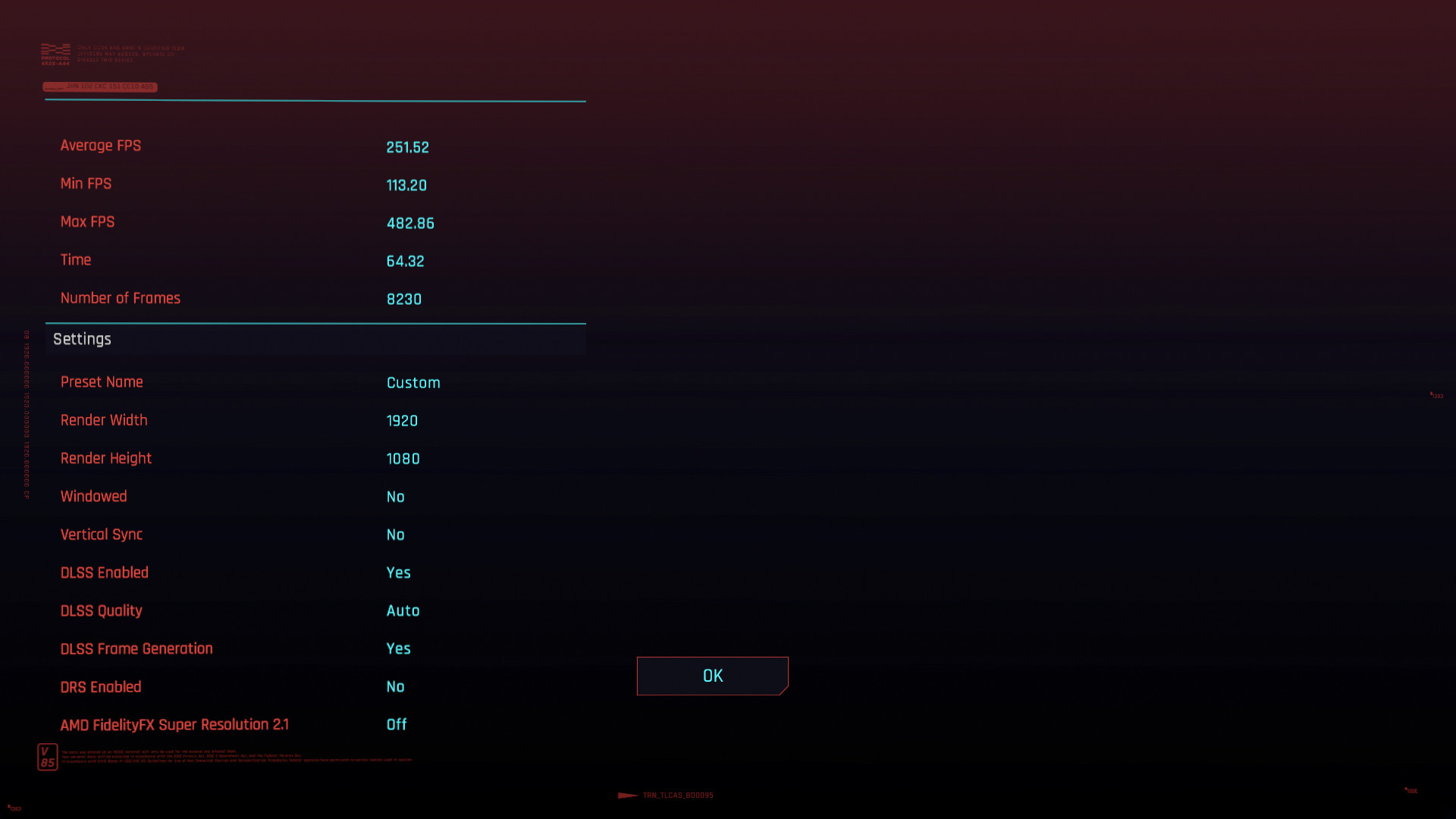
I've barely scratched the surface of gaming, but my two usual suspects, Cyberpunk 2077 and Shadow of the Tomb Raider annihilated the built-in benchmarks without breaking a sweat. True to its word, the average temperature of the 7800X3D seems to hover around the low-to-mid 80°C region when it's under stress, but my radiator fans were barely doing any work. The talk about power management holds truth; AMD is squeezing every bit of power out of this CPU like diamonds out of coal.
Admittedly, I have an NVIDIA GeForce RTX 4090 lurking inside this machine, but so did AMD for its in-house tests. Cyberpunk burned through the benchmark scene at 1080p with an average FPS of 251, never dropping below a minimum of 113. I stuck with the ultra ray tracing preset, making only a single change to activate DLSS frame generation. Loading into the story, I walked in and out of scenes with dialog, combat, and general exploration while maintaining a healthy 144Hz at essentially maximum settings. It's ridiculous.
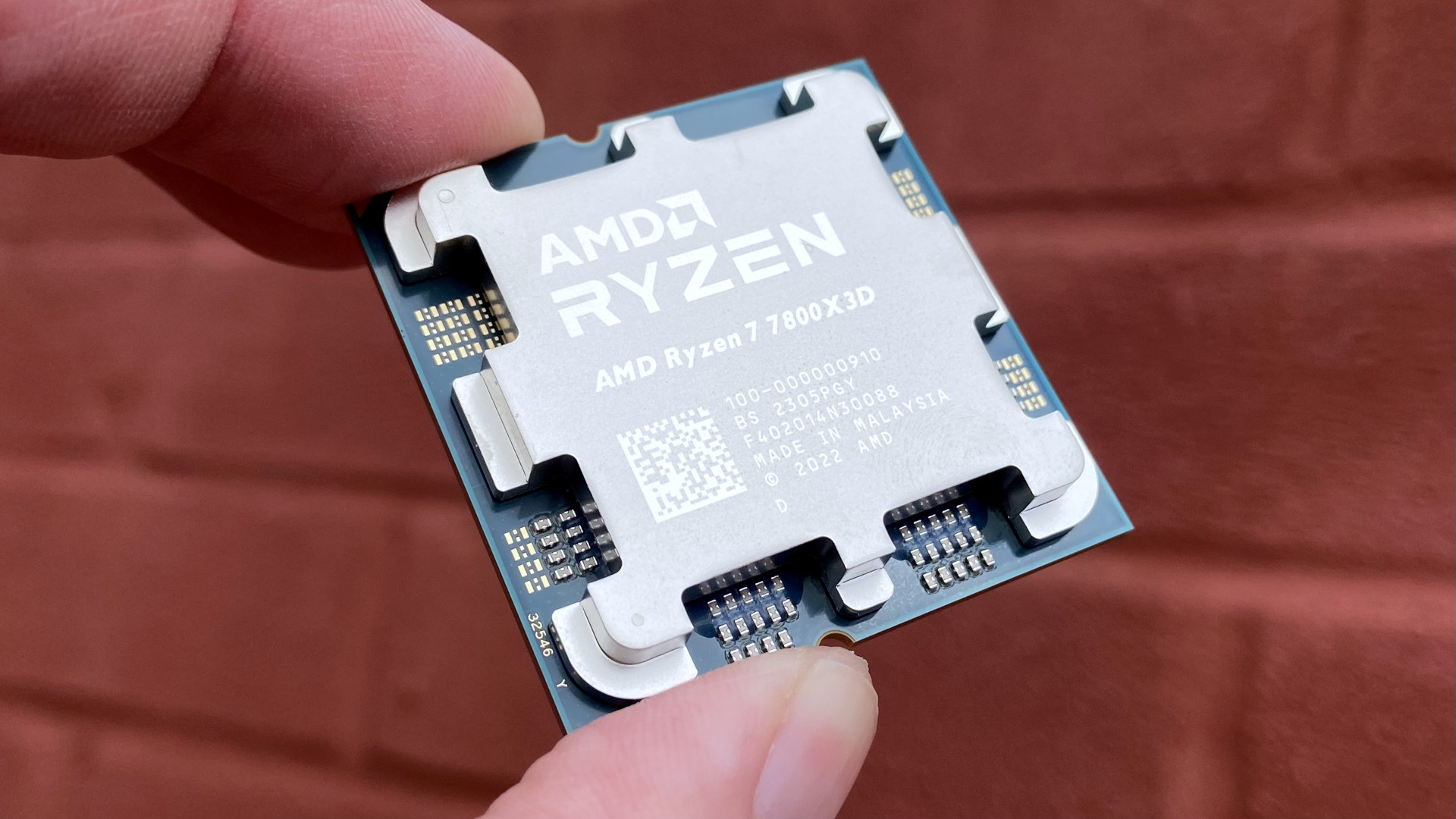
I have far more gaming benchmark tests planned for the Ryzen 7 7800X3D, specifically involving CPU-intensive titles like Factorio. You might be getting better overall performance with the high-end Ryzen 9 7950X3D, but you're also spending an extra $250 for seemingly nothing in the games department. So far, Intel has the upper hand for all-rounder solutions, but this Ryzen beast is pulling less power as a trade-off.
All of this is without overclocking, booting straight into a clean install of Windows with the latest motherboard BIOS and official chipset drivers. If you're solely looking to build a gaming powerhouse rig, the value for money on offer here is outstanding. I've reserved a higher score until I've taken this CPU for deeper testing, but my first impressions provide fantastic news for our gamer audience.
Ryzen 7 7800X3D: The competition
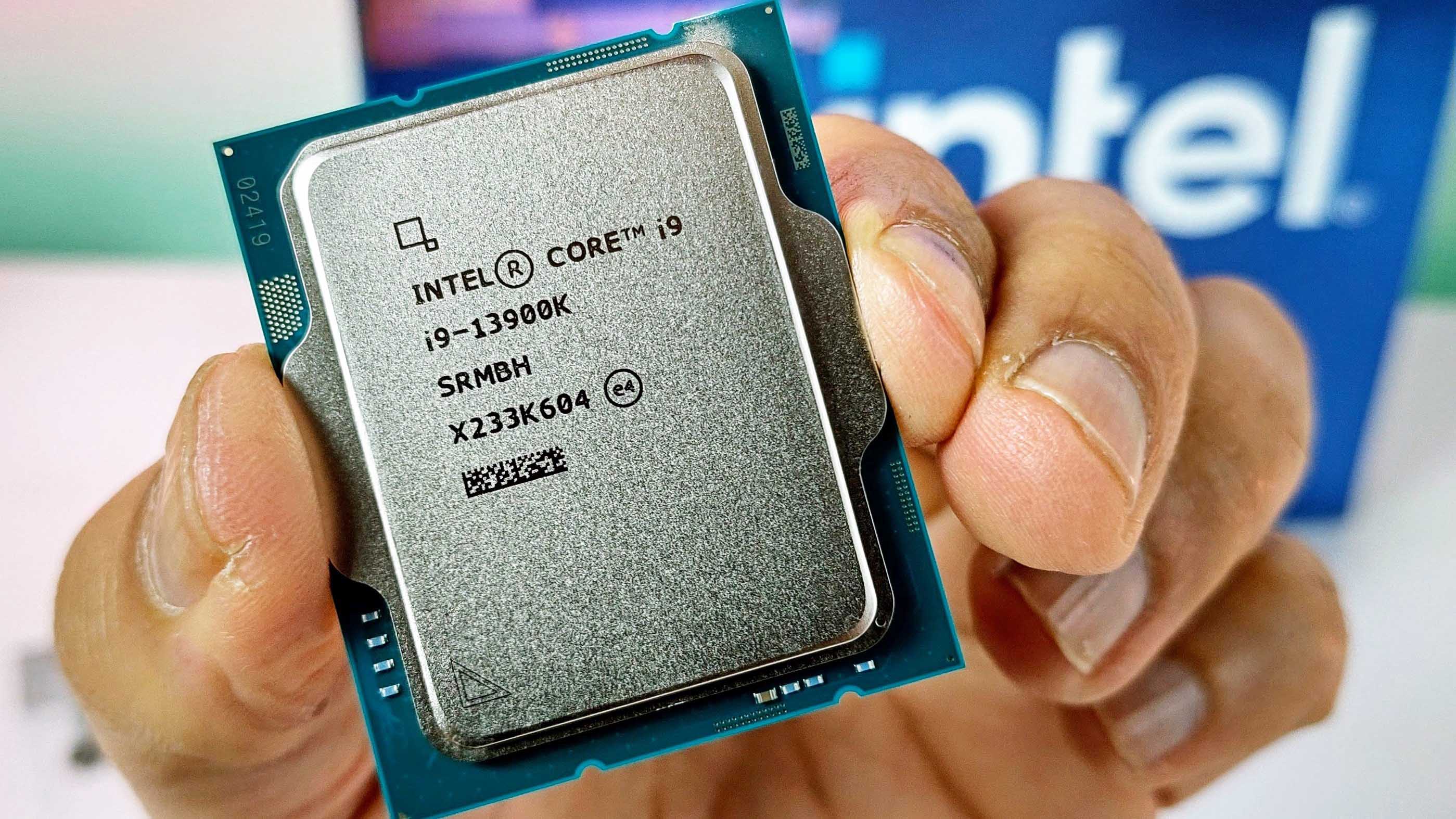
AMD outwardly pits the Ryzen 7 7800X3D against the Intel Core 13th Gen 13900K, showings its benchmarks as trumping the team blue chip in all but a few games. Intel launched its CPU at $589 MSRP, but you'd be lucky to find it any less than $570. A $19 discount since launch is almost laughable and a big ask for any aspiring gamer looking to build a custom PC.
As mentioned above, those looking for a more comfortable all-rounder will still benefit from the 13900K, shredding the 7800X3D in the 7-Zip benchmark test and proving itself as a productivity marvel alongside a worthy gaming CPU. Whether or not you're willing to drop an extra ~$120 for increased speed on spreadsheets and day-to-day app usage is up to you, but I didn't pick up an RTX 4090 to make PowerPoint presentations.
The improvements brought over from AMD's 3D V-Cache make the 7800X3D more of an appealing choice than the cost-saving alone. Though it sits as the cheapest -X3D variant, it's arguably the best option for gamers looking to adopt the AM5 socket with a chipset of their choice.
Ryzen 7 7800X3D: Should you buy?
You should buy this if ...
- You want the most powerful gaming processor.
- You prefer simplistic overclocking tools.
You shouldn't buy this if ...
- You're stuck with DDR4 RAM.
- You rely heavily on productivity apps.
You'll benefit from cross-compatibility with CPU coolers designed for AM4 sockets with this AM5 beast, but the Ryzen 7 7800X3D locks you out of DDR4 memory options. Given how much outrageous raw gaming performance is on offer from this processor, it's not an unreasonable request for an upgrade. You'll benefit from the opposition if you rely on productivity apps, but AMD isn't pretending to appeal to that crowd.
I'll dive into further CPU-intensive testing with more games, but I see little reason why the 7800X3D won't become my highest-recommended CPU for gaming. Outstanding value for $449, I could see it outlasting its two siblings and remaining a popular choice for years, assuming no sudden failures or future issues.
Dominate any game at any level, the Ryzen 7 7800X3D offers ultimate performance with 8 cores, 16 threads, and up to 5.0GHz boost clock backed up with 96MB L3 cache.







